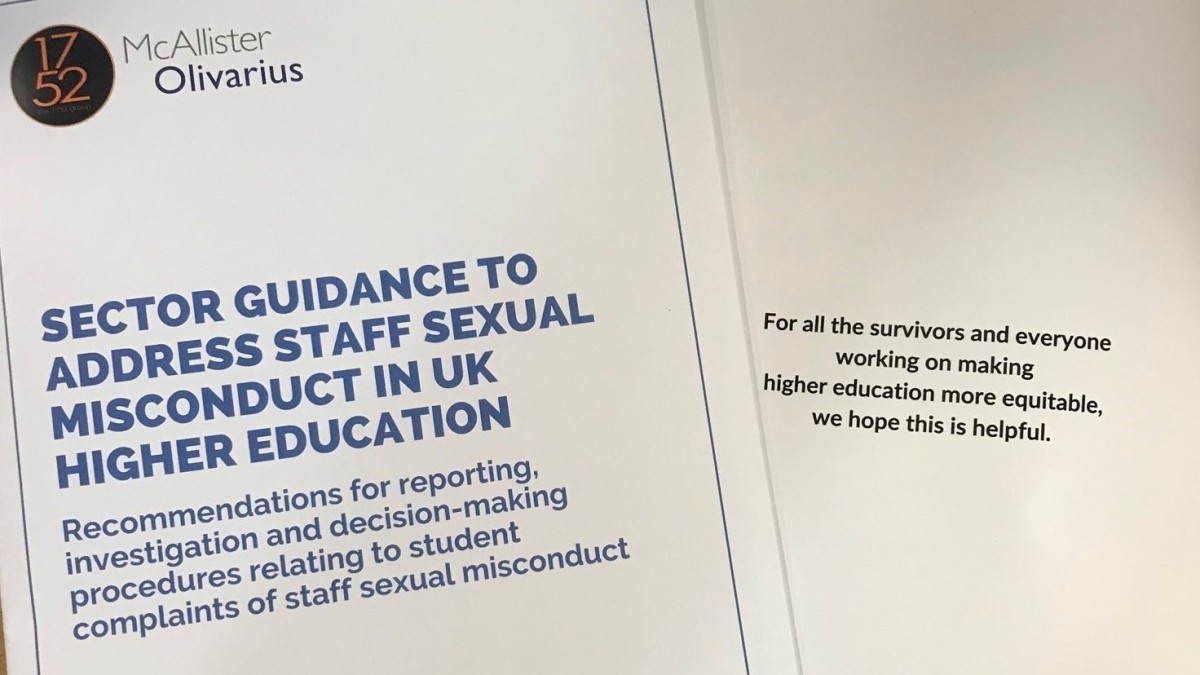Our sector guidance is accompanied by a series of briefing notes focusing on specific issues to help higher education institutions address sexual misconduct.
Briefing note 4
Briefing note no.4: Why higher education institutions should join the Misconduct Disclosure Scheme (January 2024)
Co-authored with Clarissa DiSantis from Durham University and Elena Bezzolato and Gareth Price-Jones from the Misconduct Disclosure Scheme.
The Misconduct Disclosure Scheme was set up in the humanitarian sector in 2019 and now has hundred of members worldwide. It addresses the problem of known sexual abusers moving between organisations undetected – colloquially known as ‘pass the perpetrator’ – through requiring member organisations to commit to systematically check with previous employers about any sexual harassment issues relating to potential new hires; and to respond systematically to such checks from others. As such, it gives employers a common framework to share the relevant information they need to make better hiring decisions, in this way reducing organisational risk.
This briefing note introduces the Scheme and discusses its applicability in the UK higher education legal and policy context. The campaign has been covered in international media such as Nature and Times Higher.
Briefing note 3
The 1752 Group and McAllister Olivarius Briefing Note 3: Precautionary measures on receiving a report of staff sexual misconduct, bullying or discrimination
Precautionary or interim measures refer to any measure that is reasonable for a higher education institution (HEI) to take in order to secure the safety of a reporting party during a complaints/disciplinary process, and to ensure their work/studies are not adversely affected by it. This briefing note outlines potential precautionary measures as well as confidentiality measures that should be taken when a report of staff sexual misconduct is taken forward formally. They also constitute steps that can reassure reporting parties that they will be protected from at least some forms of victimisation from the reported party, or other adverse impacts of reporting.
Briefing Note 2
The 1752 Group and McAllister_Briefing Note 2_Submitting a Subject Access Request.
An individual has the right to request any information a public institution holds on you through a Subject Access Request. Complainants and witnesses have previously found this a useful means to find out more about a disciplinary process and its outcome. Types of information that can be requested include emails, outcomes of disciplinary procedures, or any data held on your personnel/HR file. In this document you can access template SAR adapted from the Information Commissioner’s Office advice.
Briefing Note 1
The 1752 Group and McAllister Olivarius_Briefing Note 1: In cases of suspected sexual misconduct can a university pro-actively investigate and speak to potential witnesses in the absence of any formal complaint or complainant?
This briefing document provides guidance for managers and HR staff on how higher education institutions can take proactive steps to address staff sexual misconduct in the absence of formal complaints. It is designed to work alongside The ACAS Guide on Discipline and Grievances at Work (2019a) as well as the ACAS guidance on Conducting Workplace Investigations (2019b).

